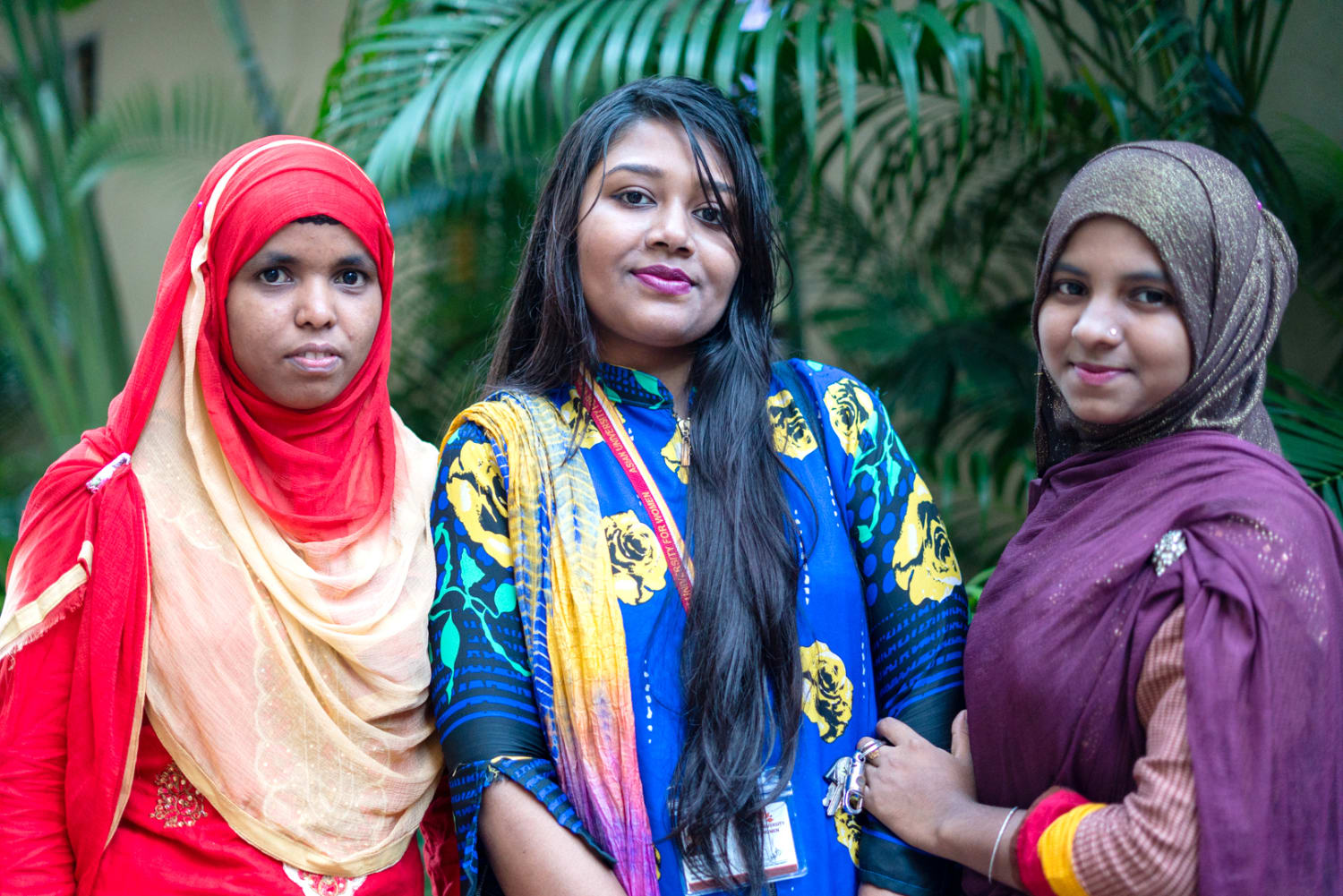[ad_1]

When Sabina Yeasmin graduated high school, she took a job in a garment factory.
The decision wasn’t unusual for a woman living in Bangladesh, one of the hubs of the global garment industry, where items for brands such as H&M and Walmart are produced. An estimated 80 percent of such garment workers are women, according to the World Bank.
Even though working conditions are often dangerous and wages are low — workers typically earn $100 a month — Yeasmin, 23, who comes from a family of daughters, still felt she had to take the job to support her family. But taking the job meant abandoning her studies.
“It was very difficult,” she told NBC Asian America.
But in 2017, Yeasmin became one of hundreds of Bangladeshi women from the garment industry and other marginalized communities to enroll in the Asian University for Women’s Pathways for Promise program, which graduated its first class this year.
Created in the aftermath of the 2013 collapse of a garment factory in Dhaka, Bangladesh, that killed more than 1,100, Pathways for Promise aims to identify and educate talented women from underserved communities. It also gives women who need it an additional year of preparation before enrolling in college coursework.
The school, which has an office in Cambridge, Massachusetts, to help with fundraising, enrolls students from 18 countries in Asia and the Middle East, specifically first-generation college students.
“The impact they can have on being an example in the community and propelling others to follow suit is much more impressive and persuasive,” said Kamal Ahmad, the founder of the university. “Being the first one has a way of altering the pathways of the family.”
A common obstacle for women who want to attend college is the cost. The women taking part in the Pathways for Promise program receive a monthly stipend during their studies to help offset the loss of wages from not working a garment job — itself a sign that the program aims to improve access to high-level education for its workers.
“Even if this young woman wants to come to this university, the family is dependent on her wages, so they won’t let her go if they don’t have the income,” Ahmad said.
About 470 students have enrolled in the Pathways Program since 2016 when it started, and about 430 have moved into the Access Academy program, another pre-collegial preparation at AUW.
That first class of 25 Pathways students graduated in May.
Masud Rahman, who teaches dance, music and performing arts, said that arts are a critical part of the university’s curriculum and can be of particular benefit to students from conflict areas.
“They are very much underprivileged students, and what happens, the environment for most of them makes them introverted. Performing arts helps them to become more extroverted and communicate well and express themselves,” he said. “It is giving the students a new language to express their rights without any hesitation and fear.”
Rahman said that one of his students was the victim of an attack by the Taliban and afterward became afraid of expressing herself to new people. After the course, she became more comfortable in front of audiences and speaking with people she didn’t know, he said.
“For a lot of students, performing arts has changed so many things in their life,” he said.
Hannah Kim, an instructor who taught reading comprehension and writing, also noted the struggles many of the women endured to secure their education.
“A lot of the students from Bangladesh, they told me how hard it was to get into university because of lack of money and there aren’t any resources to help them go into university, so the fact that AUW exists and seeks out women who are from vulnerable populations and gives them that access to education is definitely necessary,” she said.
Now, amid the pandemic, the work of AUW has become even more critical.
Covid-19 has had a devastating impact on women across the globe, including increased reports of forced marriage and gender-based violence. In April the United Nations Population Fund projected tens of millions of additional cases of gender-based violence if lockdowns continued.
The pandemic is also disrupting global efforts to end child marriage, according to the population fund, and could result in an additional 13 million child marriages over the next 10 years that could otherwise have been averted.
Like many educational institutions, AUW decided to close its residential facility in March because of the pandemic. The university transitioned to online learning through at least January, and some students have returned to their home countries.
But, Ahmad added, some students aren’t able to go back home, don’t have the resources for online learning, or feel safe returning to their communities.
“In a way the university has been a safe haven for them,” he said. “We’re down to about 50 students on campus. It’s heart-wrenching for us.”
For Yeasmin, who is scheduled to graduate in 2022, Pathways for Promise and AUW have become a way to further her goal of educating women and girls on menstrual hygiene, starting her own line of products one day and making them more affordable in Bangladesh.
“I could start working on my dream to make the garment sector a better place,” she said.
[ad_2]
Source link